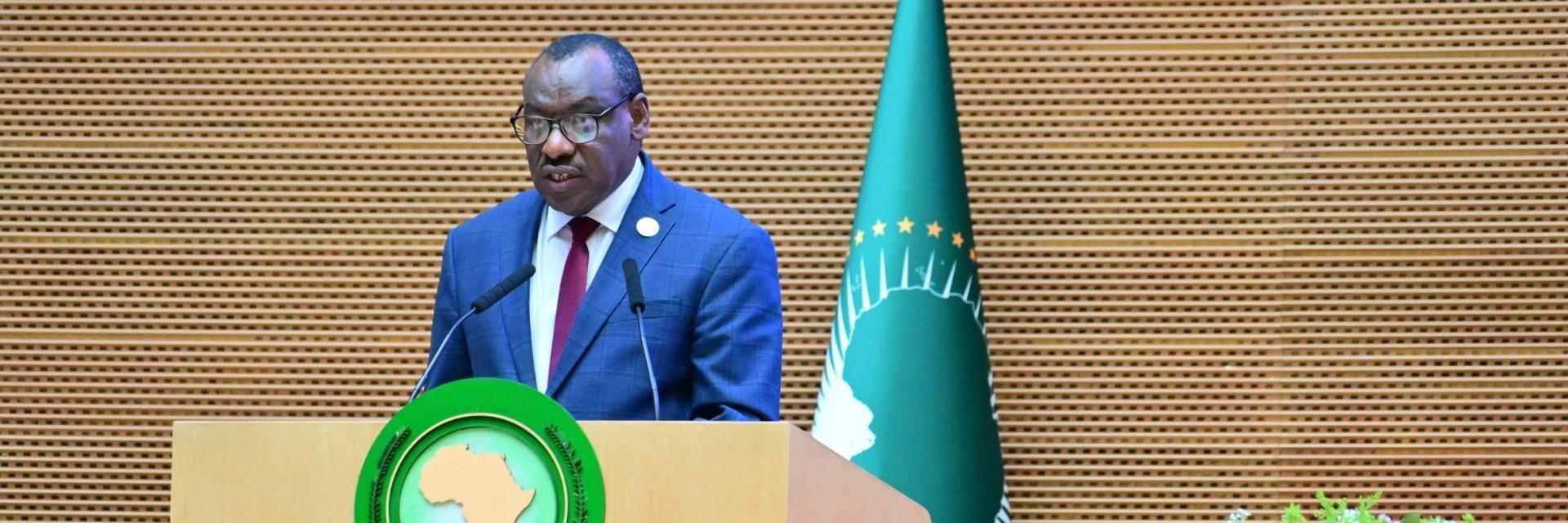Africa-Press – Ethiopia. The Executive Secretary of the Economic Commission for Africa (ECA), Claver Gatete, underscored the need for fair and equitable access to climate finance, pointing out that Africa is the least responsible for climate change, yet it pays the highest price for its impacts.
Gatete made this statement in his opening remarks at a side event during the Fourth Preparatory Committee (PrepCom) held on the margins of World Bank and IMF meeting in Washington.
Co-organised by the ECA and the African Union Commission (AUC), the event aimed to review Africa’s priorities for the FfD4 scheduled for 30 June to 3 July 2025, building on outcomes from regional consultations, and to identify key actions to ensure the FfD4 agenda aligns with Africa’s development needs.
“With the Fourth Financing for Development Conference (FfD4) in Seville, Spain, just two months away, Africa has a once-in-a-generation opportunity to rewrite the rules of global finance, so they serve as a bridge to Africa’s sustainable development,” Gatete stated.
Stressing the need to strengthen domestic resource mobilization and tackling illicit financial flows, Gatete said that as long as 89 billion USD escapes African economies each year, true resilience will remain out of reach.
“It is essential that we broaden tax bases, optimize tax systems through digitalization and plug the leaks that drain the continent’s potential,” he said and stressed the need to push forward the Framework Convention on International Tax Cooperation, “to ensure that global tax rules are made with Africa and not for Africa.”
Gatete reiterated the need to reform the global financial architecture calling for multilateral sovereign debt workout mechanism, comprehensive reform of the G20 Common Framework, an immediate interest moratorium and the establishment of a global debt authority to ensure fair, timely and transparent restructuring processes.
“African countries are struggling to invest in critical sectors, like health, education and innovation, due to unsustainable debt. It is unacceptable that today, more than 20 African countries are either already facing debt distress or are at imminent risk,” he said.
He also underscored the need for fair and equitable access to climate finance, noting that Africa is the least responsible for climate change, yet it pays the highest price for its impacts. Despite contributing less than 4 percent of global emissions, the Continent faces rising costs of adaptation and mounting barriers to climate finance.
“We must reform global climate finance systems to prioritize grants over loans, adaptation over mitigation and justice over expediency,” he said, adding that Africa’s natural capital must be properly valued and not just exploited.
The Executive Secretary reiterated his earlier call during the week, for the reform of multilateral development banks and international financial institutions to match today’s global realities.
While he applauded the African Union’s and South Africa’s inclusion in the G20 and the incremental gains at the IMF and World Bank, he said Africa calls for a full reform of quota systems, a recalibration of voting rights and a development finance architecture that puts the Continent’s priorities including climate resilience, industrialization and human capital at its heart.
Gatete also urged for “an African Financing for Development Accountability Platform” to track the FfD4 commitments and progress, expose gaps and accelerate real change and underscored the need to institutionalize robust accountability and data systems.
“Without data, progress cannot be assessed. And without accountability, promises are immeasurable,” he said.
He further stressed the need to unlock private capital for development as public finance alone cannot bridge the continent’s investment gap, estimated at 100–$150 billion USD annually.
For More News And Analysis About Ethiopia Follow Africa-Press






